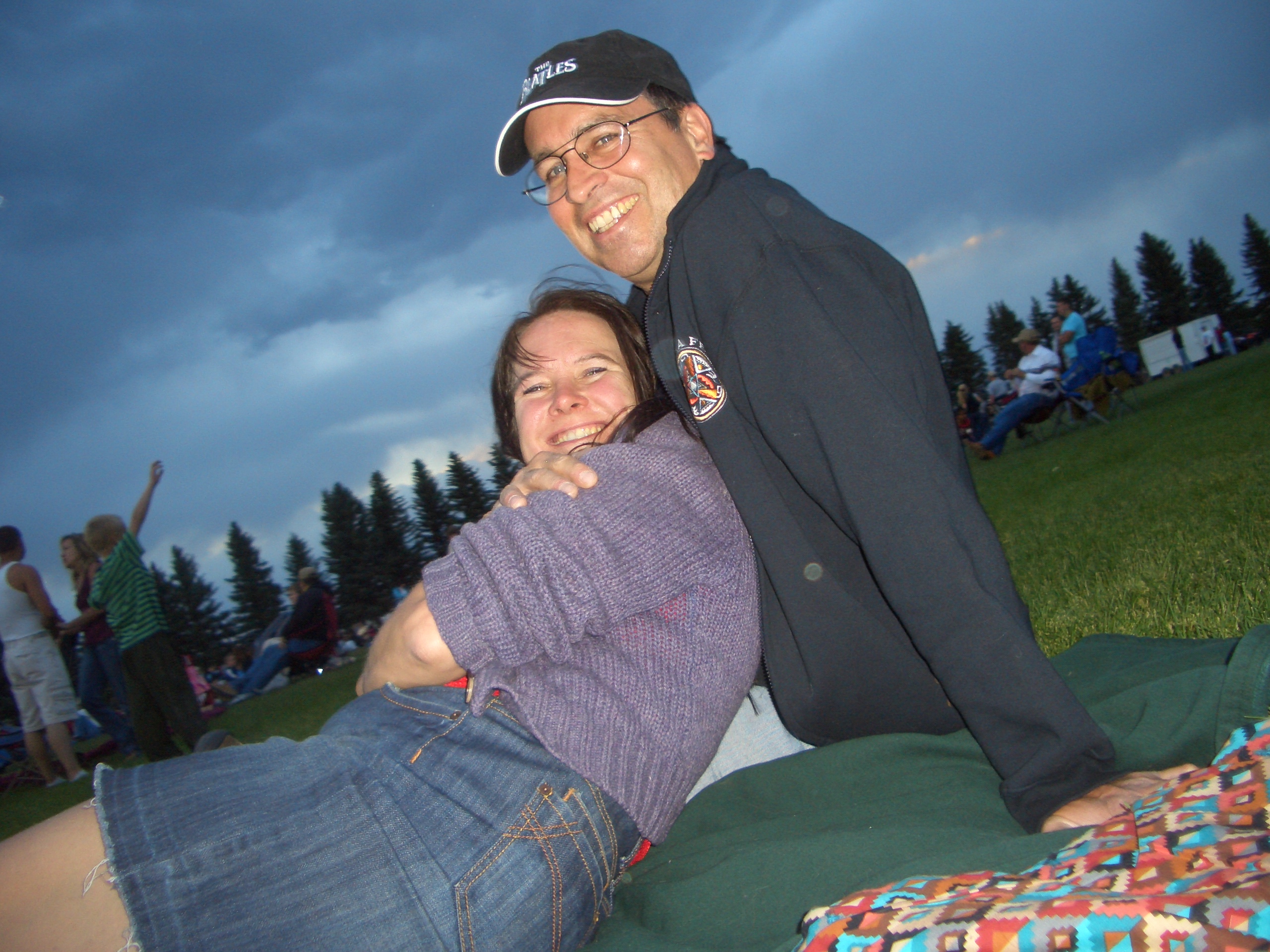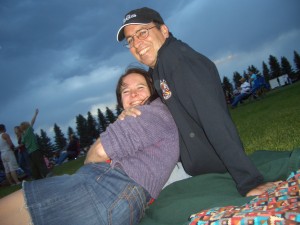I’m still having fun raiding my mother’s former laptop for photos I never had copies of. She had this one of me and David framed and it’s always been one of my favorites. Now I have it in digital, too!
Yesterday I posted to the Contemporary Romance Cafe blog about The Rocky Road to Publication – which, naturally, included a riff on the Irish folksong. It amused a few people, but I think mostly no one knew what a shillelagh is, for example.
For those who did not grow up with a grandfather who took his blackthorn shillelagh on walks after dinner, it’s pronounced shi-LAY-lee. I know – Celtic spellings are weird. Speaking of which, please say Keltic, not Seltic. The Boston team is wrong. I don’t know how that came to be, but they’re just… WRONG.
At any rate, my grandfather, Pat McGee, boldly embraced the image of the Irishman – to the eye-rolling of some family members. He was born in Pottawatomie Indian Territory in 1906, a year before Oklahoma officially became a state. His parents, both also born in the US to Irish immigrant parents, named him Raymond Ivor, but he always went by “Pat.” Much more Irish – and not unlike the Paddy of the song, a standard nickname for any Irishman. Some of the family took his Irishness with a particular lump of salt because he used it, too, as a justification for drinking to excess. St. Patrick’s Day could get ugly. And Christmas. And, well, lots of occasions when my mother and her sisters were growing up.
Some of it was going on still when I was a girl, but I was largely oblivious. I loved my Papa to no end and those after-dinner walks in the golden light of evening loom large in my memory. To me, the fact that he had a blackthorn shillelagh and called it that, wasn’t a foible, but an emblem. I totally bought the schtick.
For me, it was real.
When he left my grandmother to live with the woman he’d been having an affair with all the years of their marriage – more Irish shenanigans – he took the shillelagh with him. Cirrhosis got him out in California. My grandmother held firm and refused his request to come home, so he died out there. I was a teenager at the time and respected how hard it all was on my mother, aunts and grandmother. Only years and years later, when I set out to write down my memories of him, did I wonder what happened to his shillelagh. Probably the girlfriend’s family disposed of it. She had died, too, by the time I tried to find out and no one seemed to know.
I think about it still. If I made my life a novel, it would be the thing I kept of his. I’d take it when I went for walks and remember that very flawed man who was a father to me after my own died. Who was probably a better father to me than he was to his daughters. Who instilled in me a love of books and Omar Khayyam and smooth Irish whiskey. Who taught me to pay attention to how a horse’s hoof really looks before I tried to draw it.
Who showed me that carrying a shillelagh can also be magic.

